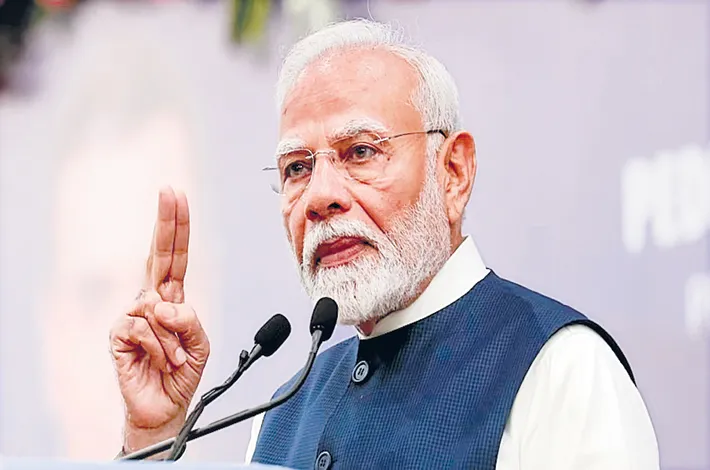When do reels replace roots?
16-09-2025 12:00:00 AM

There was a time when silence meant peace. Now, it feels ominous. A new kind of bomb ticks quietly not in war zones, but in our homes, schools, and temples. It doesn’t shatter walls; it hollows minds. Its name is the smartphone.
This sleek device doesn’t need enemies or borders, it just needs attention. And attention it has in abundance. The recent violence in Nepal isn’t a distant headline. It’s a warning. A nation turned on itself, not over politics or war, but because a digital toy was taken away. Parliament, shops, homes—set ablaze not by outsiders, but by its own youth.
What was lost? Not food or freedom. A screen, A stream, A reel. Civic restraint crumbled over lost data, not lost dignity. This wasn’t revolution—it was rage without roots. And the tragedy is, many still believe it was justified. But what will they rebuild, when they finally realize what’s been burned?
Walk through any town today. Books are rare. Screens fill every hand. Even infants won't eat without a reel playing. Teenagers scroll through strangers until they sleep. Reels filled with vulgarity, tasteless comedy, and foul language dominates attention spans.
We are raising a generation that thirsts for likes, shares, and viral fame, breaks down when disconnected and replaces real goals with digital illusions. From toddlers to elders, this digital addiction spreads. The result? A collapse in identity. When the screen dies, so does the sense of self.
Our traditions and heritage once taught values. Now, they’re discarded. Education has become a mechanical race flip pages, write exams, forget everything. Social media drowns out history. Today’s youth admire foreign influencers but can’t name national leaders or reformers. They wear, eat, and speak what algorithms dictate. They scroll through borrowed cultures, while forgetting their own.
We watch as our youth imitate the tiger’s roar—without knowing it’s a jackal’s cry. The culture that once bowed in respect now greets with “hi” and “yo.” And who's to blame? We are. We handed children smartphones. We claimed we had no time—and, in doing so, destroyed theirs. Children learn what they see. If we graze in swamps, they will too.
Emotional fragility, social intolerance, and spiritual emptiness didn’t appear overnight—they were inherited. We failed to teach sharing, service, and sacrifice. We severed the roots of truth, justice, and dharma. A storm has come, and our foundation is too weak to stand. From birth, children are surrounded by addictions, pointless knowledge, fake rituals and virtual lives, craving for fame, not purpose and lives without discipline or spirituality.
What happened in Nepal is already happening in our homes. The smartphone bomb ticks here too. It’s only a matter of time—unless we act. We don’t need to fix Nepal. We need to fix our homes. Save our children. Restore our roots. We must teach them values, control screen time, reconnect with books, culture, and tradition, share our legends and history, model the behavior we want to see and choose character over convenience.
Change doesn’t come through slogans—it comes through silent, consistent example. Parents must live what they preach. Children watch more than they listen. Let’s rebuild a childhood where stories matter more than screens, where elders are guides—not outdated relics, and where culture breathes daily, not just during festivals.
Malladi Venkata Gopala Krishna – Senior Journalist








